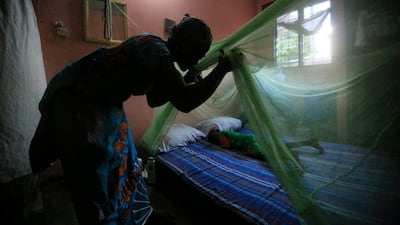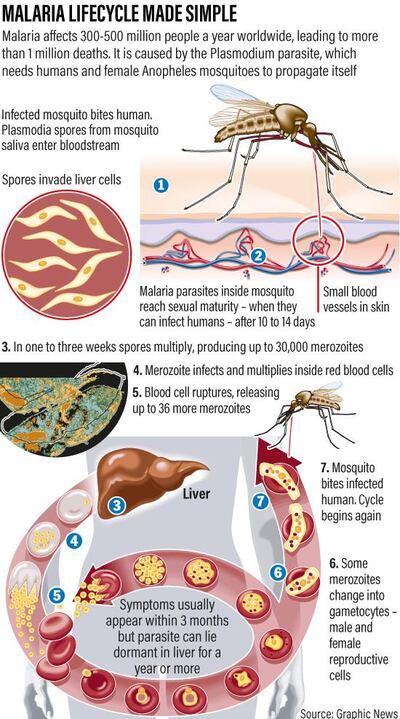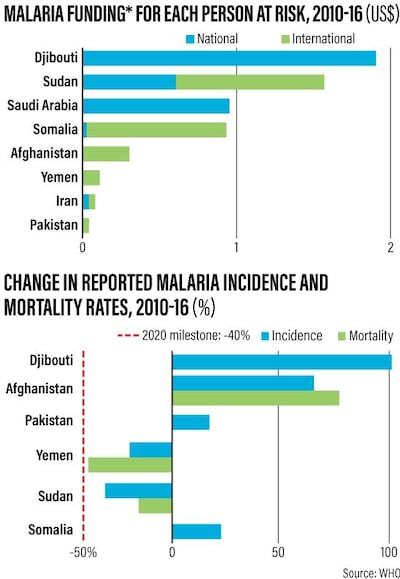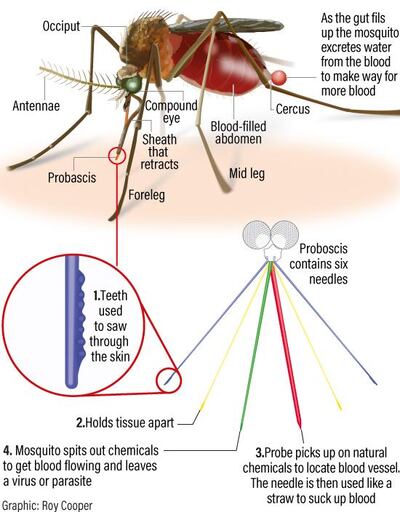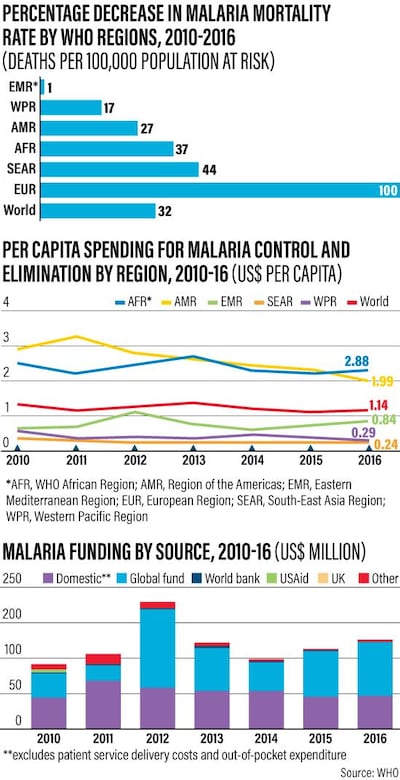The UAE was certified to be malaria-free in January 2007 but cases continued to be recorded here. Nearly 5,000 people were treated for malaria in 2016, health officials say.
They were infected on visits home or travelling in countries and regions where the disease is still endemic, and still kills large numbers of people.
You do not have to travel far to reach such places. Published to mark World Malaria Day, our map shows that the UAE is an oasis surrounded by places where malaria remains a constant threat to life and a constant worry for parents and their children.
Afghanistan and Pakistan are severely affected countries, but the worst is Sudan, where the most recent annual death toll was estimated at nearly 1000.
Read more: Malaria kills a child every two minutes - and experts fear it'll worsen
The good news is that many of our neighbours in the Gulf have also been declared free of indigenous malaria, including Kuwait, Bahrain and Iraq, although Saudi Arabia still records more than 5,000 cases a year.
As well as treating those unfortunate victims who arrive here with the disease, the UAE is a major contributor in the continuing fight to make malaria history through the global Roll Back Malaria initiative.
Read more: UAE is world's top donor of development aid in 2017
Sheikh Mohammed bin Zayed, Crown Prince of Abu Dhabi and Deputy Supreme Commander of the UAE Armed Forces, has also donated $30 million to the fight.
